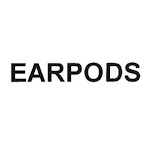On January 28, 2021, Taiwan’s IP Office (“TIPO”) rejected trademark application for “Brica” (application no. 108053240, see below), designated for use in goods under class 11, including household appliance such as coffee machine, hair dryer, water dispenser, beverage machine, etc.
TIPO’s main reasons are that the application violates Article 30.1.11 of Trademark Law, which provides that a mark shall not be registered if such application is similar with other’s well-known trademark, and hence there exists likelihood of confusion on the relevant public, or likelihood of dilution of the distinctiveness or reputation of said well-known trademark.
In this case, TIPO considered “Brica” is confusingly similar with “BRITA”, which is the trademark registered and owned by BRITA GMBH (see below), the worldwide leading company in the water filters and purifiers.
As for similarity, TIPO found “Brica” is visually and verbally similar with “BRITA”, with minor difference in their respective fourth letters, where “Brica” ends with “ca” and “BRITA” ends with “TA”.
Turning to the similarity of the designated goods, TIPO noted that the products that “Brica” was applied for use are household appliances that may be used or purchased in association with water filter or purifier, which are the products designated by the well-Known “BRITA” trademarks. For example, in coffee machine, water filter may be used to filter the water, which is later used to brew the coffee. Thus, TIPO determined products designated by “Brica” is similar and associated with the products designated by “BRITA”.
Since “Brica” is considered similar with the well-known “BRITA” trademark, and applied for use in similar products, which may cause confusion with the cited well-known trademark, TIPO denied application for “Brica” accordingly.
Source:



















